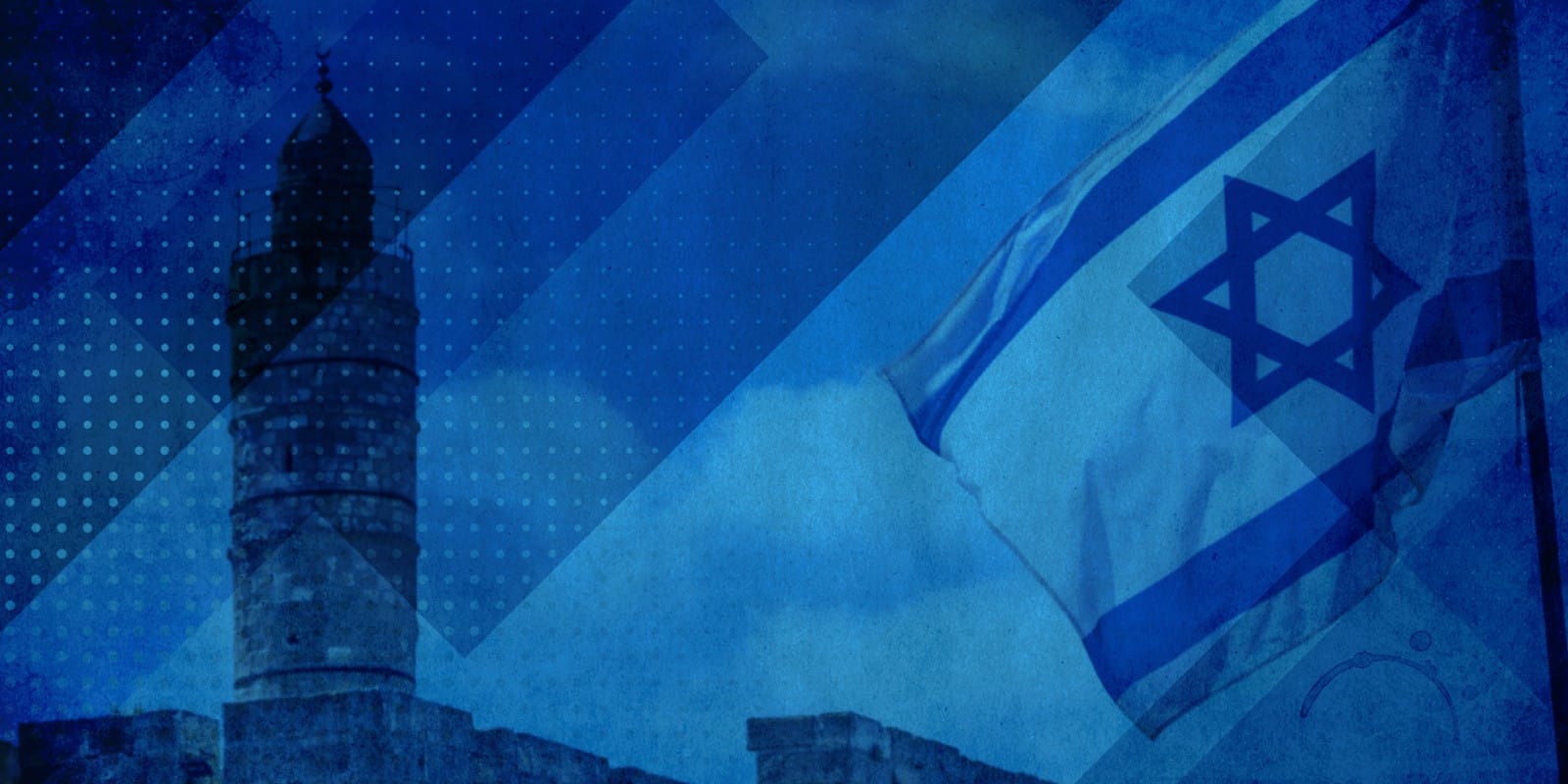אחד עשר דגשי מדיניות עיקריים לממשלת ישראל ה-36, המשקף את התובנות של עמיתי מכון ירושלים לאסטרטגיה ולביטחון, אשר התכנסו לערוך סקירה מקיפה של האתגרים העומדים בפני קברניטי המדינה, ועל מנת לתכלל סדרת המלצות לפעולה בתחומי מדיניות החוץ והביטחון.
מדינת ישראל היא מדינה חזקה, על אף הטלטלה הפנימית של השנים האחרונות. בהיבטים מסוימים, מצבה האסטרטגי הוא טוב מאי פעם, וגם משבר הקורונה וסבב הלחימה מול חמא”ס במאי 2021 המחישו את חוסנה של החברה הישראלית במצבי מצוקה. עם זאת, עדיין קיימים איומים חמורים על ביטחונה. האיום הראשון במעלה הוא תגרעונתה האפשרית של איראן והצורך שישראל תיאלץ לפעול בכוחות עצמה מול איראן, על כל הכרוך בכך באשר לסיכון גבוה לפגיעה בעורף הישראלי על ידי איראן ו\או על ידי שליחיה. יתר על כן, ישראל נמצאת בסכסוך אלים ממושך ולא פתיר בטווח הנראה לעין, עם הפלסטינים. לכן, על ישראל להיות מוכנה למלחמה. זהו גם המבחן העליון של החברה בישראל.
ממשלת ישראל חייבת לתת את דעתה בראש ובראשונה על שמירת הלכידות הלאומית ובניית עוצמה צבאית ומדינית מול האיומים העיקריים. זאת, לצד שאיפה לנצל הזדמנויות מדיניות – בהמשך ל-“הסכמי אברהם”. בטווח הנראה לעין, מרחב הפעולה המציאותי הוא ניהול הסכסוך מול הרש”פ, וחיזוק ההרתעה מול חמא”ס. בתוך כך, יש למקד מאמץ בשיפור היחסים עם ארה”ב ולהעמיק ולבסס את מערך הקשרים שבנתה ישראל בזירת הים התיכון. בה בעת, יש לתת תנופה מחודשת לעשיה הדיפלומטית גם בגזרות נוספות, בדגש על איזון בין הקשרים המתרחבים עם סין והמדינות המנסות לבלום אותה.
1. לשמור על הלכידות הלאומית
הלכידות הלאומית היא תנאי הכרחי לחוסנה של ישראל במבחנים הביטחניים הקשים שבפניה. לאחר טלטלה פוליטית ארוכה והרסנית, על הנהגת המדינה לטפח את כושר עמידתה של החברה הישראלית הכוללת היבטים כלכליים, חברתיים, חינוך יהודי, וחיזוק התודעה בצדקת הדרך – תוך בניית קונצנזוס רחב ככל האפשר. זאת, לקראת מהלכים מלחמתיים אפשריים, ניהול הסכסוך הבלתי פתיר עם הפלסטינים, והתנהלות יעילה בזירה האמריקנית והבינלאומית בעידן ביידן.
2. לבלום את איראן
השיבה להסכמה משנת 2015 ((JCPOA בין איראן לארה”ב לא תסיר את הפוטנציאל לפריצה איראנית לנשק גרעיני. אולי מימושה יידחה. לפיכך, על קהיליית המודיעין וצה”ל לבנות יכולת אמינה לפעול עצמאית לסיכול תוכנית הגרעין האיראנית. יכולת זו תתרום גם למאמץ האמריקני להשיג הסכם “ארוך יותר וחזק יותר”. נדרש גם המשך “המערכה בין המלחמות” על מנת למנוע הקפת ישראל ב”מעגל אש” על ידי בניית תשתית לטילים לטווח ארוך בעיראק, סוריה, לבנון, עזה, ואף יהודה ושומרון (מכאן גם החשיבות של סיכול כוונותיה של איראן לערער את היציבות בירדן).
3. להתכונן ללחימה במתארים מחמירים
הממשלה, תוך דו-שיח רציף עם צה”ל, צריכה להנחות את הצבא להיערך למגוון תרחישי לחימה, על בסיס הנחות מחמירות, ולהקצות את המשאבים לכך. יש להתכונן למלחמת טילים רב-זירתית, ולבנות כוח קרקעי בעל יכולת תמרון והכרעה על ידי העברת הלחימה לשטח האויב: מאמץ “המודיעין-אש” אינו חלופה, אלא גורם תומך. נכונות הציבור להמשיך את מבצע “שומר החומות” (ובשעתו, “צוק איתן”) מצביעה שהרגישות לאבדות בישראל היא נמוכה מזו שמעריכים בדרך כלל.
4. לשמר את התמיכה של ארה”ב בישראל כסוגיה דו-מפלגתית
אין תחליף לתמיכתה של ארה”ב. לצד המערכת הפוליטית יש להדק את הקשר עם המערכת הצבאית-ביטחונית וקהיליית המודיעין, ולהטות אוזן קשבת לעמדת ארה”ב כלפי סין. ישראל צריכה להקפיד על טיפוח הקשר עם שתי המפלגות, נוכח הכרסום באהדה לישראל במפלגה הדמוקראטית. הגיעה העת לצמצם נזקים ביחסים עם יהדות ארה”ב, בייחוד מול הדור הצעיר – שלצד תהליכי עומק בחברה האמריקנית, נגרמו גם בשל התנהלות בסוגיות דת ומדינה בישראל. יש לעודד מתן אפשרות לחינוך יהודי לכל ילד יהודי אמריקני גם במחיר השקעה מצד ממשלת ישראל.
5. להציב את ירושלים במקום גבוה בסדר העדיפויות
מבצע “שומר החומות” אותת על המשך הנסיונות לאתגר את שליטת ישראל בירושלים. לפי כך, יש להציב את ירושלים במקום גבוה בסדר העדיפויות הלאומי, גם בגלל שביטחון ישראל מחייב שליטה בירושלים ובמרחבים שסביבה. יש לחזק את הרוב היהודי בעיר על ידי בנייה נרחבת גם בשטח 1-E לכיוון מעלה אדומים. בה בעת, יש למשול במזרח העיר בתקיפות ובהגינות, לחזק את מגמת האינטגרציה אצל ערביי מזרח העיר על ידי השקעה משמעותית בתשתיות ובחינוך, ולפעול נגד הגורמים החותרים לערעור ריבונות ישראל בבירה.
6. לנהל את הסכסוך עם הפלסטינים
ישראל צריכה להמשיך באסטרטגיה של “ניהול הסכסוך” שביסודה ההכרה (שייתכן כי גם ממשל ביידן שותף לה) שהסדר קבע עם הפלסטינים אינו עומד בפתח; ולכן היעד המציאותי הוא לצמצם את מחיר הסכסוך לשני הצדדים. מרכיביה הם: שימוש מדוד בכוח, “גזרים” כלכליים, שיפור המשילות בשטח C, ושמירת החתימה ההתיישבותית הנוכחית בשטח, להוציא בנייה בעוטף ירושלים ובבירה, שיש להרחיבה. יש להתכונן למניעת השתלטות חמאס על הרשות בעידן שלאחר אבו מאזן, ולקיים ככל הניתן את שיתוף הפעולה הביטחוני. גם אם “תוכנית טראמפ” ירדה מסדר היום, יש להבהיר במבט לעתיד מה לא ניתן למיקוח במסגרת הסדר פשרה אפשרי – ברוח הרעיונות שהנחו את יוזמתו של הממשל הקודם.
7. להגיב נמרצות על “טפטופים” מעזה ולהתעקש על שחרור שבויים תמורת שיקום עזה
גם לאחר מבצע “שומר החומות” ראוי שישראל תמשיך במדיניות “כיסוח הדשא” שכוללת מהלומות חזקות במרכיבי הכוח של חמאס וניסיון להשיג הרתעה לתקופות ארוכות ככל האפשר. היעד הוא לצמצם את הנזק החומרי והפסיכולוגי לאזרחי ישראל, ולמנוע את הנזק המדיני הנובע מהתפרצויות אלימות. איומים מעזה הם משניים לעומת הזירה העיקרית, בצפון (דעה אחרת במכון גורסת שיש לטפל קודם בעזה כדי להפנות את עיקר הכוח מול איראן ןוגרורתה בלבנון). למרות שההרתעה הישראלית אינה תלויה רק במכות שמנחיתים על החמאס, תחזוקה של ההרתעה מחייבת תגובות נמרצות לכל שיבה ל”טפטופים”. יש לנצל הפרה של הפסקת האש לחיסול בכירים, אם יש מודיעין מתאים. אין למהר בשיקום עזה, אשר ישרת את בניית כוחו הצבאי של חמאס. יש להתעקש על החזרת שבויים ונעדרים כמחווה הומניטרית תמורת שיקום עזה. דרישות לפירוז אינן מעשיות ללא כבוש עזה, אבל יכולות לשרת תכליות טקטיות: דחיית שיקום עזה עד להשגת הסדרה רחבה, ו/או בניית מנגנון שיעצים את השפעתה של מצרים על חשבון קטר.
8. לשלב אכיפה מוגברת עם טיפול במצוקות האוכלוסיה הערבית בישראל
המשקעים בין המגזר היהודי והערבי בתוך ישראל שלאחר מבצע “שומר החומות” לא ייעלמו בגלל הסכסוך האתנו-דתי הממושך. אין זה מונע להמשיך בשילוב הציבור הערבי בכל המישורים האזרחיים, ולהקנות עדיפות לטיפול במצוקות מתמשכות של ערביי ישראל. חייבים לסמן בתקיפות גבולות ברורים להתנהלות מקובלת ולגבות מחיר עבור התנהגות אלימה, תוך השבת שלטון החוק בכל רחבי הארץ. מבצע איסוף נשק במגזר הערבי הוא משימה ראשונית.
9. לתת עדיפות למצרים וירדן, לצד הרחבתם של הסכמי אברהם והתייצבות מול ארדואן
מצרים וירדן הן שותפות אסטרטגיות (גם במזרח הים התיכון) ויציבותן היא בעלת חשיבות מרחיקת לכת. יש להעמיק את התיאום עם מצרים ובמקביל, לשקם את היחסים עם מלך ירדן, שנסדקו בשנים האחרונות. מעמדה של האחרונה בהר הבית הופך את המציאות הקיימת בירושלים לאינטרס משותף. יש לפעול במתואם עם איחוד האמירויות ושאר השותפות להסכמי אברהם (שיש להמשיך ולחתור להרחבתם) לא רק מול איראן, אלא גם מול תורכיה, כל עוד מנהיגה ארדואן תומך בחמא”ס (האחים המוסלמים) וחותר תחת הריבונות הישראלית בירושלים. יש להדק את הקשרים במשולש האסטרטגי – ישראל, יוון וקפריסין – כמשקל-נגד. נדרש מעקב גם אחר הפעילות התורכית בתחום הגרעיני. בה בעת, תורכיה היא מדינה מוסלמית חשובה שיש בה גם קולות אחרים, וראוי להמשיך בקשרים מסחריים ותרבותיים איתה ועם עמה.
10. לטפח את קשר אסטרטגי עם הודו – אך להמנע מקרע עם סין
שאלת מאזן הכוחות באסיה היא כיום הסוגיה החשובה בסדר היום העולמי. ישראל אינה יכולה לחמוק מבחירה במחנה האמריקני. עליה לטפח את היחסים המיוחדים עם הודו ושאר ה-Quad (מערך הכוחות ה-“אינדו-פאציפי”, הכולל את ארה”ב, הודו, יפן ואוסטרליה). ישראל צריכה לגלות זהירות גדולה יותר ביחסיה הכלכליים עם סין כדי להפחית תלות מסוכנת וחששות אמריקניים. בה בעת חשוב להימנע מקרע עם סין, ולהמשיך בזיהוי תחומים שבהם יש אפשרות לעשייה משותפת.
11 .להרחיב את העשיה הדיפלומטית הישראלית
מבחינה ארגונית, הגיעה העת להיפוך במגמת השחיקה ביכולותיו של שירות החוץ הישראלי. יש להשיב חטיבות שפוזרו במשרדי ממשלה אחרים, ולהשיג את המשאבים הדרושים לניהול פעילות דיפלומטית. חשוב לחזק ולהרחיב גם מנהל סחר החוץ – בעידן שבו חצה הייצוא הישראלי את סף ה-400 מיליארד שקל (כשליש מההכנסה הלאומית). כמו כן, יש להמשיך בהעצמת יכולותיה של קהיליית המודיעין. יש לבסס מתכונת סדורה של דיונים בין-משרדיים בכל סוגיות המפתח, בהובלת המטה לביטחון לאומי.
בין הדגשים לדיפלומטיה הישראלית, מעבר לאלו שפורטו לעיל, יש להוסיף:
א. לפעול להעמקת הקשר עם אוכלוסיות במדינות דוברות הערבית.
ב. לשמר את הדו-שיח עם ההנהגה במוסקבה ואפיקי הקשר עם כוחותיה של רוסיה בסוריה, המאפשרים הימנעות מעימות (deconfliction).
ג. לבסס עוגנים של שיתוף פעולה מדיני וביטחוני עם מדינות מפתח באירופה (כולל שותפות אינטרסים עם צרפת במזרח הים התיכון) לצד מאמץ להנחיל את עמדות ישראל במכלול האיראני, ולהעמיק את ההבנה למאבק בטרור.
ד. להתמיד בניסיונות לשנות את דפוסי ההצבעה של מדינות ידידות בארגונים בינלאומיים.
ה. לחתור ליחסים גלויים עם אינדונזיה ובנגלדש, בהמשך להסכמי אברהם.










 - בניית אתרים
- בניית אתרים